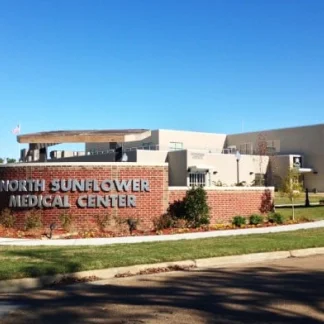North Sunflower Medical Center
Ruleville, Mississippi, 840 North Oak Avenue, 38771
Available Programs
- Adult program
- Elderly program
- HIV/AIDS program
Insurance and Financial
- Medicaid
- Private insurance
- Self-pay options
- Financial aid
- Medicare
About this Facility
North Sunflower Medical Center, in Ruleville, Mississippi, offers mental health and addiction recovery services for youth and adults, including dedicated services for persons with hearing impairment, seniors, persons with HIV/AIDS, and persons with co-occurring addiction and mental illness.
North Sunflower Medical Center offers multiple levels of care to align with clients’ evolving needs. Clients receive medical and mental health assessments and personalized care planning to determine the appropriate treatment modalities.
The inpatient program provides high-level structure and support for clients requiring round-the-clock supervision and clinical or psychiatric stabilization. Clients may be prescribed FDA-approved medications to ease withdrawal symptoms and prevent complications. Clients also engage in intensive individual, group, and family counseling and robust, age-specific, recovery-focused life skills training addressing topics such as coping and relapse prevention.
Their outpatient programs are designed for adults aged 18 and over and include continuing counseling and recovery education. Their most intensive outpatient program encompasses three hours of treatment for up to four days per week. Private transportation, meals, and social and recreational activities are provided. Their aftercare services ensure a complete continuum of care and may include step-down support and referrals for additional medical, mental health, and social service programs.
North Sunflower Medical Center accepts most major insurance plans, including TRICARE, Medicare, Medicaid, Anthem, Aetna, Cigna, and BlueCross/BlueShield. Please check with your provider to verify coverage, as out of network benefits may vary. Financial assistance is available.
Contact us for more information: (662) 756-2711

Contact North Sunflower Medical Center
Connect with North Sunflower Medical Center by calling their admissions team directly.
(662) 756-2711 Website Get Directions